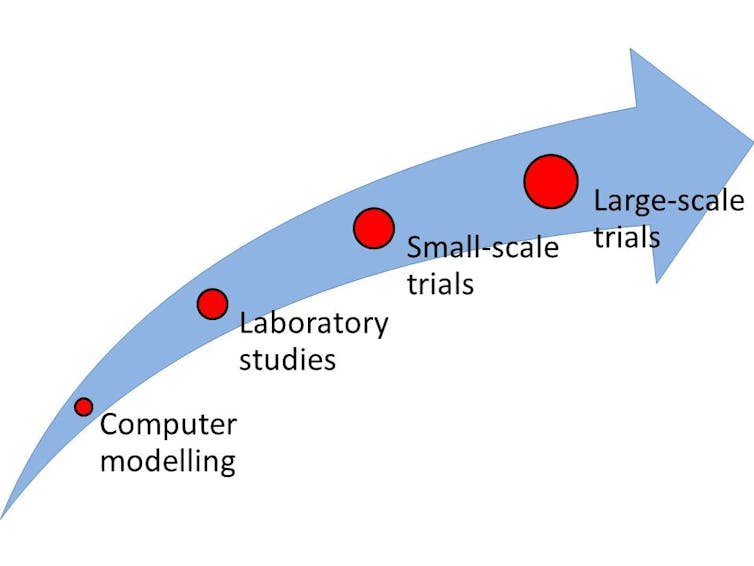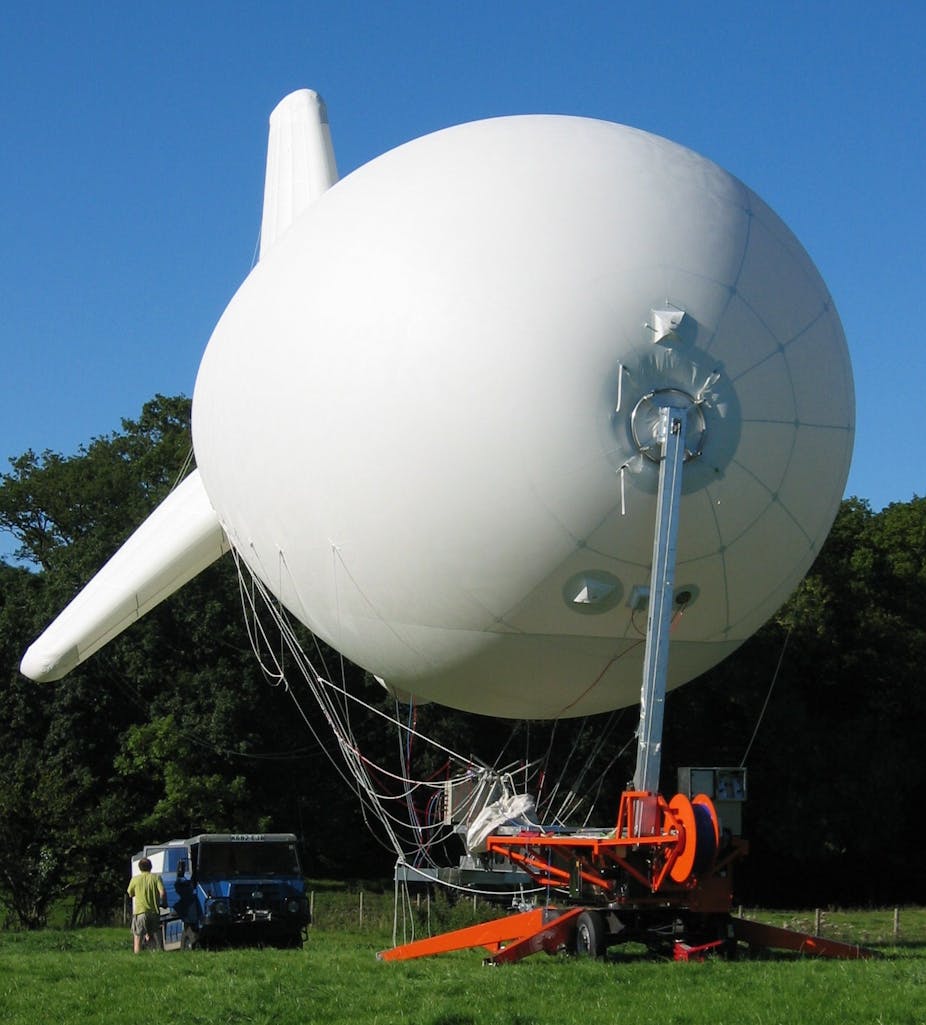Inventors have long been protecting their ideas by filing patent applications on new technologies. But is it appropriate for researchers or companies to own the intellectual property rights to climate-altering technologies?
This is a significant issue for the scientists and engineers involved in the UK-based Stratospheric Particle Injection for Climate Engineering (SPICE) project.
SPICE test cancelled
Last month, the SPICE project announced the cancellation of a 1km balloon test; this test was discussed last October on The Conversation. The reasons for the cancellation are complex, and relate to intellectual property rights and governance initiatives.
The aim of the 1km balloon test was to collect data on the motion of a balloon and hose in various wind conditions. This data would be used to validate computer models. Those would then inform the design of a 20km tethered balloon for delivering reflective aerosols to the stratosphere.
The test was originally scheduled for October 2011, but was postponed to allow further stakeholder engagement.
The test itself is environmentally benign, but public engagement activities have shown that the test cannot be considered in isolation from its potential applications.
Intellectual-property rights
At the inception of SPICE, the project partners signed a formal agreement to put all results into the public domain and not to exploit (profit from) results from the project.
One of the reasons the test was cancelled is that a patent application for the balloon technology was filed before the SPICE project was proposed. Two of those named on the patent application are also part of the SPICE team.
Although this potential conflict of interest was disclosed to the funding bodies before the £1.6 million ($A2.5 million) SPICE grant was awarded, the details of this application were only recently reported to some SPICE members.
There is no suggestion that the patent holders acted inappropriately. The intention of the patent was to protect intellectual property, not to make commercial gain. The funding body is investigating the circumstances surrounding the patent, and the award of the SPICE grant.
The role of patents in geoengineering is under debate. The number of patent applications being filed for geoengineering technologies is increasing. It is clear that a resolution is needed urgently.
Governance
Another major concern for the SPICE researchers is the lack of an international governance framework for geoengineering research. How should scaling up geoengineering technology, from computer modelling to field trials, be regulated?

Efforts have been made to produce guidelines for geoengineering research. The “Oxford Principles”, discussed in the House of Commons, hold that all research should be regulated as a public good. Last year the Royal Society published a report on governance initiatives relating specifically to solar radiation management techniques.
Despite this attention, there is currently no national or international mechanism for regulating geoengineering research. The activities of the SPICE project are being regulated by a combination of self-governance and oversight by the governmental funding bodies.
The lack of clear and specific guidelines for geoengineering research has caused unease among the SPICE team. In light of this, conducting a 1km balloon test was deemed to be a premature and unnecessary escalation of this research.
The future of SPICE
The majority of SPICE research continues unchanged by the cancellation of the 1km test.
But the loss of data from the 1km test is a significant challenge to the SPICE engineers. Computer predictions of balloon motions can only be trusted when they have been compared to real-life tests. So we are exploring alternative methods of validating the models, such as flying kites and laboratory measurements.
The SPICE team is committed to continued public deliberation and stakeholder engagement on geoengineering issues. We sincerely hope that the decision to cancel the 1km test will facilitate rational and timely discussion of the intellectual-property, governance and broader issues related to geoengineering.

